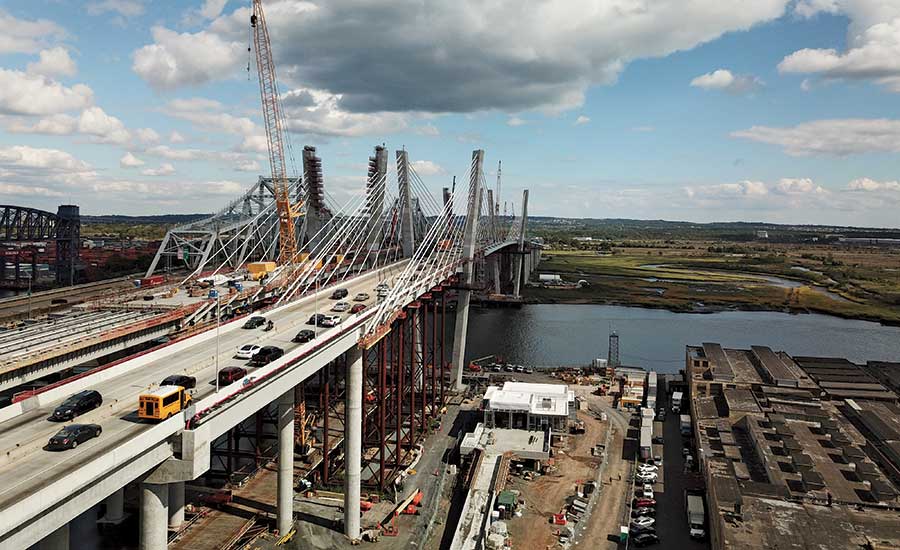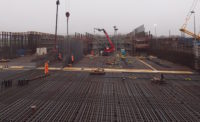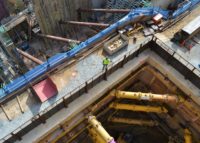Big design-build infrastructure projects often turn out to be money-losers for design-build contractors, preventing contractors from covering their overhead, much less earning a profit, according to a new study. Large highway and bridge projects, many involving public-private partnerships, are the least profitable of all infrastructure work.
Carried out by Travelers National Construction Services Surety team, the study looked at 224 highway, bridge, rail, transit and tunnel projects with different project delivery methods from 2004 to 2020. All projects had contract values between $250 million and $4 billion and almost all were projects on which Travelers had been the surety or co-surety.
On more than four out of 10 design-build projects, the study found, the design-build contractor failed to cover its costs. And on mega-projects with a value of $250 million or more, the contractor often fared better when traditional design-bid-build procurement was used, according to the study
“If the contractor had design liability, in general the average profit margin fell by 77%,” says Stan Halliday, chief underwriting officer for Travelers contract surety.
Public-private partnerships performed the worst. “My understanding is that owners see design-build in such projects as almost completely a risk-transfer mechanism to the contractor and it hasn’t worked well,” says Halliday.
With Congress now weighing a big infrastructure funding measure, Halliday says that “if P3s are part of it, we have to rethink what we are doing. Contractors are aware of the problems but I’m not sure the owners believe them.”
There is a recent possible example, not mentioned in the study summary.
A Kiewit-led team is in federal court with the Port Authority of New York & New Jersey over disputed costs on the $1.5-billion replacement Goethals Bridge between New Jersey and Staten Island, N.Y. Work was completed in 2018, and Kiewit has made an estimated $100-million claim tied to its costs on that project that the agency refuses to pay.
A full copy of Travelers' research methods for its infrastructure study and results has not yet been made public, but the summary released this month echoes prior studies of design-build. Those studies suggest that design-build, in order to yield good results on big projects, must be carried out in a collaborative spirit, with a shared interpretation of the contract terms and an experienced team leader in charge of work.
Halliday says that in CM/GC arrangements, where the construction manager provides a price guarantee, and progressive design-build procurement models, work better. Those delivery methods usually involve the contractor or design-builder in the earliest phases of design development so that it can set the guaranteed maximum price at 50% to 75% or higher of the design.
“Contractors find they can’t provide price on 30% design,” says Halliday. “It’s just not working. The under-billing results in a lot of claims.”
According to Travelers' study, CM/GC contracts "produce few if any unresolved claims and under-billings on infrastructure work, allowing contractors to make their expected profit.”
“The jobs get done on time and there aren’t any disputes,” adds Halliday.
Response to Design-Build Problems
There are many reasons that complicated mega-projects go over-budget and exceed schedules, notes Lisa Washington, chief executive of the Design-Build Institute of America. Not all can be traced to design-build.
But the Travelers study is another example that design-build "is not a panacea," says Washington, and must be executed with the proper amount of collaboration and experienced leadership in order to fulfill its promise.
"A mind-shift is needed. It’s a mindset as well as a contract," she adds.
To address potential pitfalls, DBIA has had a "design-build done right" educational initiative since 2014 and this year will be exploring in its programs where design-build was done wrong.
Travelers, too, believes some of the poor results are due to on contractors' underestimating the risks on some of these mega-procurements.
But the infrastructure study is important, Travelers says in a statement released with its study summary, because work should be done in a way that minimizes disputes, provides greater certainty about timely completion, best protects taxpayer dollars "and allows the contractors to have a reasonable chance of achieving an acceptable financial return."






Post a comment to this article
Report Abusive Comment